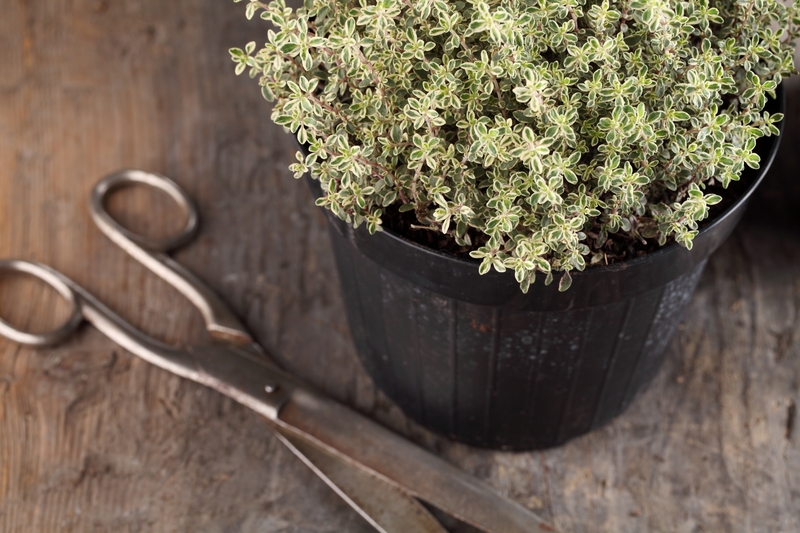Three Game-Changing Weed Control Tips for You
Posted on 30/06/2025
Three Game-Changing Weed Control Tips for You
Are relentless weeds threatening to take over your lawn, garden, or landscaping? If so, you're not alone. Effective weed management is the cornerstone of a thriving outdoor space, but many homeowners and gardeners struggle to keep invasive plants at bay. In this comprehensive guide, we'll unveil three game-changing weed control tips that can truly transform your approach to weed removal and prevention. Implementing these strategies will save you time, boost your plants' health, and create a lawn that fills you with pride year-round.

Why Weed Management Matters More Than Ever
Weeds can drastically affect the health and beauty of your plants. They compete with your flowers, vegetables, and grass for water, nutrients, and sunlight. Besides being unsightly, some invasive species also harbor pests and diseases that impact the well-being of your green space. Innovative weed control tips can help you tackle these issues sustainably, reducing labor and minimizing chemical dependency.
1. Mulch Like a Pro: The Barrier Method That Works Wonders
Why Mulching Is a Game-Changer for Weed Prevention
The ancient practice of mulching remains one of the most effective methods for natural weed control. Mulch acts as a protective barrier, shading out weed seeds and making it difficult for them to germinate. By preventing sunlight from reaching the soil, you stop weeds before they even start.
How to Mulch for Maximum Weed Suppression
- Apply a thick layer (about 2-4 inches) of organic mulch such as bark, straw, or shredded leaves around your plants. This smothers weed seeds and retains soil moisture.
- For professional-grade weed prevention, use a weed barrier fabric beneath your mulch--especially in garden beds and pathways--to block persistent perennial weeds.
- Replenish mulch regularly, as decomposition thins your barrier and creates opportunities for new weed growth.
Bonus Tip: Selecting the Right Mulch
Different areas of your landscape may benefit from varying mulch types. For vegetable gardens, consider biodegradable options like straw, which add organic matter to the soil. Decorative bark or wood chips are ideal for ornamental beds and walkways. Choose materials that fit your yard's needs, but always remember--the thicker the mulch, the better the weed suppression!
2. Harness the Power of Pre-Emergent Herbicides
Proactive Strategies for Weed-Free Lawns
Pre-emergent herbicides are cutting-edge tools in the world of weed management. Unlike traditional weed killers, pre-emergents aren't designed to kill existing weeds. Instead, they disrupt weed seed germination, stopping new problems before they start. This approach is especially impactful in the spring and fall, when the majority of problematic weed seeds are preparing to sprout.
How to Use Pre-Emergent Herbicides Effectively
- Timing is everything: Apply pre-emergent products before the target weeds germinate. For cool-season weeds, apply in the early fall. For warm-season weeds like crabgrass or goosegrass, treat your lawn in early spring--just as soil temperatures begin to rise.
- Uniform coverage: Use a spreader or sprayer for even application. Avoid skip areas, as bare spots may become prime real estate for new weed infestations.
- Follow up with watering: Most pre-emergent herbicides work best when watered in immediately after application. This helps the product bond with the top layer of soil, maximizing its effectiveness.
- Safety note: Always follow label instructions and keep pets and children away from treated areas until the application is dry.
The Pros and Cons of Pre-Emergent Weed Control
- Pros: Long-lasting barrier against annual weeds, less manual labor, and reduced need for post-emergent herbicides.
- Cons: Not effective against established weeds or deeply rooted perennials; may conflict with plans for seeding new grass or flowers.
If you're committed to a low-maintenance, weed-free lawn, integrating pre-emergent herbicides into your seasonal routine can be a game-changing step in your weed management strategy.
3. Cultivate a Dense, Healthy Lawn: The Natural Weed Deterrent
Why Healthy Lawns Outcompete Weeds
One of the most overlooked yet powerful weed control tips is simply maintaining a vigorous, dense turf or planting beds. Thick grass and ground cover plants leave little room, water, or sunlight for weeds to take hold. This reduces the viability of weed invasion over time--the very best kind of prevention!
Five Steps to a Lush, Weed-Resistant Lawn
- Mow high: Set your mower deck to its highest or next-to-highest setting. Taller grass shades the soil, making it harder for weed seeds to germinate.
- Reseed bare spots: Quickly address thin or bald patches with overseeding. The more densely your grass grows, the fewer weeds you'll see.
- Feed your soil: Fertilize as needed for your grass type and soil. Healthy, well-fed lawns naturally resist weed competition by outgrowing them.
- Water deeply, but infrequently: Deep soakings encourage grassroots to grow deep, making them hardier and better able to outcompete weeds--even during dry spells.
- Choose the right grass for your climate: Select a turf type suited to your region and sunlight conditions. The right grass will establish faster and choke out unwanted plants more effectively.
Bonus: Encourage Beneficial Ground Covers
In flowerbeds and landscaping, consider planting low-growing ground covers such as creeping thyme, Ajuga, or sedum to fill in gaps. These living mulches crowd out weeds, insulate the soil, and add year-round beauty to your garden beds.
Additional Strategies for Long-Term Weed Management
Beyond the three game-changing weed control tips outlined above, here are some bonus ideas to keep your garden and lawn in prime health:
- Hand-pull stubborn weeds: Target invasive perennials and weeds already in flower before they can go to seed. Use a weeding tool for deep-rooted species like dandelions or dock.
- Spot-treat with post-emergent herbicide: For patches of persistent or mature weeds, selective herbicides can be a valuable tool when used sparingly and carefully.
- Regular monitoring: Walk your garden and lawn often. Early detection of weed emergence makes control easier and prevents larger infestations.
Eco-Friendly and Organic Weed Control Alternatives
For gardeners who prefer a more natural approach, there are effective organic weed control options as well:
- Homemade vinegar sprays: Apply undiluted white vinegar directly onto young weed leaves on sunny days. Be cautious--vinegar can also harm desirable plants.
- Boiling water: A simple, chemical-free way to kill weeds in patios, driveways, and walkways.
- Flame weeders: These propane devices can char and kill weeds without soil disturbance, ideal for driveways or between paving stones. Always follow safety guidelines.
Tip: Mulching, dense planting, and proper watering are all natural methods that work even better when combined.
The Cost of Ignoring Effective Weed Control
Neglecting weed management leads to more than just an untidy yard. Over time, unchecked weeds can:
- Reduce yields in vegetable gardens
- Harbor pests and diseases
- Damage hardscapes and walkways
- Reduce property value and curb appeal
Remember: A small effort each week is far easier (and cheaper) than reclaiming a space overgrown with weeds!

Frequently Asked Questions about Weed Control
- How often should I mulch to control weeds?
- Is it safe to use pre-emergent herbicide in my vegetable garden?
- Can I control weeds without chemicals?
Reapply or top up mulch as it decomposes, typically every 1-2 years. Monitor for thin spots, especially after heavy rain or wind.
Only certain pre-emergents are approved for food crops. Always read labels and choose products labeled safe for edible plants.
Yes! Mulching, dense planting, hand-pulling, boiling water, flame weeding, and natural mat barriers are all highly effective with diligent application.
Conclusion: Conquer Weeds with a Smart, Multi-Pronged Approach
By combining mulching, pre-emergent herbicide use, and cultivating a robust, healthy lawn, you gain the upper hand against even the most persistent weeds. These game-changing weed control tips don't just offer short-term relief--they set you up for long-term weed prevention success.
- Start early: Prevention is always more efficient than removal.
- Be consistent: Regular maintenance rewards you with fewer weeds and more time to enjoy your outdoor space.
- Diversify your strategy: Combine physical, chemical, and organic control methods to keep your landscape healthy and resilient.
If you're ready to reclaim your yard from weeds forever, follow these proven tips--and enjoy a lush, beautiful landscape all year long!
Latest Posts
Building Lush Gardens with Composting Innovations
Maximize Your Garden's Potential with Creative Seating Ideas
How community gardens are helping to combat climate change

